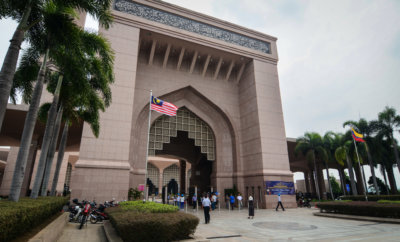NRI
Controversy Hits Malaysian Indian Investor’s Takeover of Cambodian Newspaper

Representational Image
Photo: Bigstock
Malaysian Indian businessman Sivakumar S Ganapathy is said to have fired Phnom Penh Post's editor-in-chief after a story linking him to the Cambodian prime minister was published.
The takeover of Cambodia’s Phnom Penh Post newspaper by Malaysian Indian businessman Sivakumar S Ganapathy, which has been mired in controversy, witnessed new mayhem after several employees resigned following the removal of editor-in-chief, Kay Kimsong, on May 6.
The controversy began after the Phnom Penh Post published an article exposing alleged links between Ganapathy, who is the managing director of Kuala Lumpur-based public relations firm ASIA Public Relations Consultants Sdn Bhd, with Cambodian Prime Minister Hun Sen.
Kimsong was fired on May 6, the day the article was published, and after he reportedly refused to take down the “damaging” story. After Kimsong’s eviction, five other senior staff members resigned. The authors of the story, Indian-origin reporter Ananth Baliga and Brendan O’Byrne, were among those who quit. According to the South China Morning Post, discussions on further walkouts “are ongoing.”
Over 20 current and former staff members signed a statement, expressing their “disgust” after “representatives of the new owners” reached the office and “ordered” staff to remove the article from the newspaper’s website, Al Jazeera reported.
Ganapathy’s company website lists “Cambodia and Hun Sen’s entry into the Government seat” as a former “project.” In the story, it was said that Ganapathy has links with the Malaysian government as well, and that he had written a biography, titled Taib – the Visionary, of Sarawak state’s Chief Minister Abdul Taib Mahmud, according to SCMP.
After being ordered to remove my story regarding the sale of the Phnom Penh Post from the website by new management, I refused and offered my resignation, which was accepted. I wish the fantastic journalists at The Post all the best.
— Brendan O'Byrne (@BrendanOByrne) May 7, 2018
Kudos to my colleagues @phnompenhpost for soldiering on despite all the distractions y’day. Like always, they produced a strong piece on the firing of Kay Kimsong and resignations of senior staff. They added context and expert opinions but this was culled by the new editor. pic.twitter.com/EKNVdNb9yS
— Ananth Baliga (@antbaliga) May 8, 2018
“A lot of us are heartbroken today,” reporter Erin Handley quoted as saying by SCMP. “Our new owners decided that our news story that pointed out questionable links between then and the Cambodian and Malaysian governments was damaging to their reputation … [and said] ‘we want it taken down’.”
Ganapathy took over the newspaper, which is touted as the last independent newspaper in the country, from former Australian owner Bill Clough. The sale of the newspaper was confirmed by Clough on May 5, who blamed the sale on falling advertising revenues. He told the BBC that Ganapathy is a “well respected newspaper man” and that the outstanding tax bill was cleared as part of the deal.
Ganapathy said he would uphold the Post’s legacy and editorial independence.
The sale of the newspaper invited outcry from rights groups. Phil Robertson, deputy Asia director of Human Rights Watch, told Reuters that the deal was a “disaster for media freedom.”
This is not the first newspaper in Cambodia to see alleged government interference in the last year. The government also forced the shutdown of The Cambodia Daily and dissolved the main Opposition party in a wide-ranging crackdown in 2017.
Cambodia slipped 10 places in the 2018 World Press Freedom Index, to rank at No. 142 in a list of 180 countries, raising concerns about freedom of the press and freedom of speech and expression in the country.




You must be logged in to post a comment Login